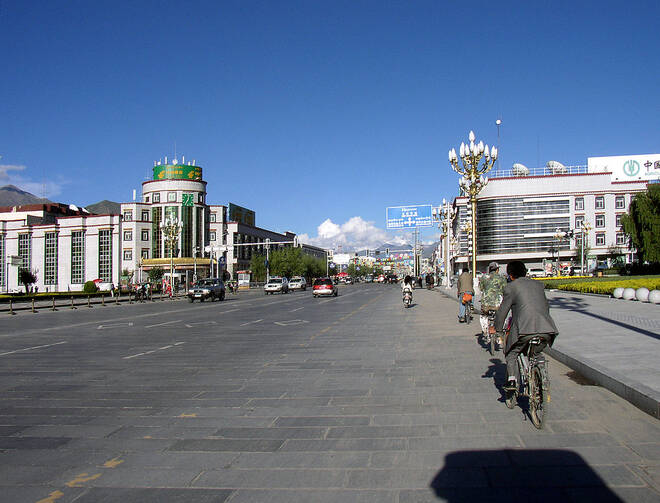Following China's massive military parade in Beijing on Sept. 3, celebrating the 70th anniversary of the end of World War II, and its role in defeating Japan, People's Army soldiers paraded again on Sept. 8. This time they marched to mark the 50th anniversary of the establishment of the Xizang Autonomous Region, more commonly known in the West as Tibet. Fifty years after it established, or re-established, control over the area and ended the Buddhist theocracy that has ruled it, Tibet and its level of autonomy or independence remains the most sensitive of issues for China's government.
Although the removal of crosses in coastal Zhejiang province has generated significant attention to issues of religious freedom in China recently, it is Tibet that remains the lightning rod for that topic. Supporters of Tibetan independence argue that China is a colonizing and occupying force, accusing the government of trying to destroy Tibetan culture. China's government maintains—not entirely without merit—that it has held suzerainty over the region for centuries and that Tibetans were freed from abject serfdom when the People's Liberation Army drove out the Dalai Lama in March, 1959.
The sensitivity of the issue manifested itself again this week. The first scheduled in concerts in Shanghai and Beijing by multi-platinum rock band Bon Jovi, slated for September 14 and 17, respectively, were abruptly cancelled. The group apparently used an image of the Dalai Lama during a concert about five years ago.
Bon Jovi certainly isn't the first Western act to run afoul of the Tibet taboo. In July, pop group Maroon 5, also set to play its first live concert in Beijing this month, had that show cancelled, likely due to a band member’s attendance at an 80th birthday party for the Tibetan spiritual leader. Icelandic singer Bjork shouted “Tibet! Tibet” during a performance in Shanghai as part of her song “Liberate Yourself.” Government officials made it clear afterwards that she would no longer be welcome in China.
The actual founding date of the Xizang Autonomous Region is September 1. However, the anniversary ceremony was scheduled later due to the commemoration in Beijing of the end of the war with Japan. In Lhasa, Tibet’s capital, Beijing always comes first.








